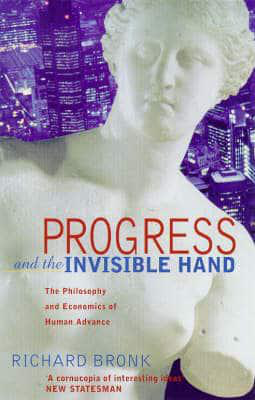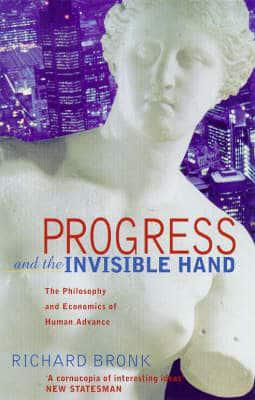Progress and the Invisible Hand: The Philosophy and Economics of Human Advance was published in hardback by Little, Brown (July 1998) & in paperback by Warner (July 1999). 265 pages - ISBN 0-7515-2660-6.
The book was ahead of its time in reflecting and analysing millennial angst about the increasingly frayed links between economic growth and progress in human welfare. It provides the general and academic reader with an introduction to some vexed areas of the philosophy of economics through a history of ideas framework.
Progress and the Invisible Hand starts by examining ambiguities in the general concept of progress (particularly progress in welfare or happiness), with the help of an historical survey of philosophical and literary thought on the subject from ancient times to the present day. It also explores the strong links between utilitarianism and free-market economics
The book then focuses on contemporary strains in the two-hundred-year-old relationship between economic growth and advances in welfare, and explains why rising environmental and social costs, and the uncertainty and complexity of modern life, are increasingly casting doubt on the ability of the free market to generate human progress.
Questioning many of the basic assumptions behind rapid free-market deregulation in the headlong search for economic growth, the book argues that if the environment is to be safeguarded, poverty minimised, and the worst excesses of the rat race avoided, there remains an overriding need for the free market to be supported by a strong framework of morality, social cohesion, and rational government intervention. The disquieting conclusion is that if we continue to destroy the necessary balance between social cooperation and freedom for individuals to pursue their own interests, the chances of continued human progress will be slim. Humanity will be left at the mercy of the market - condemned to be its slave rather than its master.
For reviews and advance praise of Progress and the Invisible Hand, click here.

